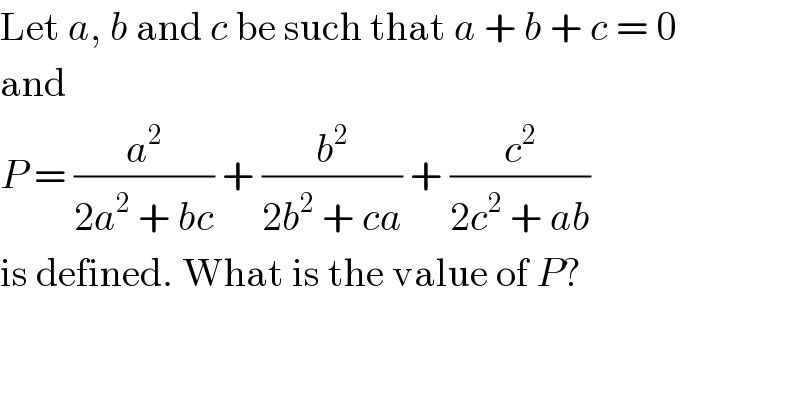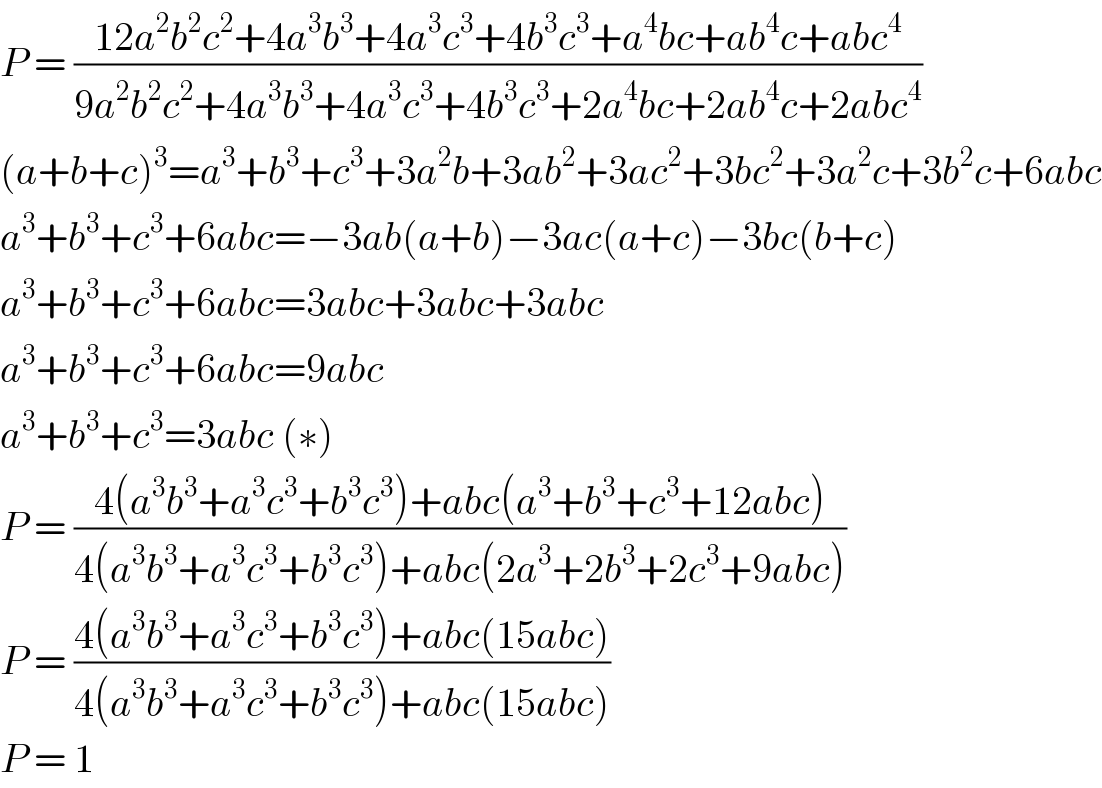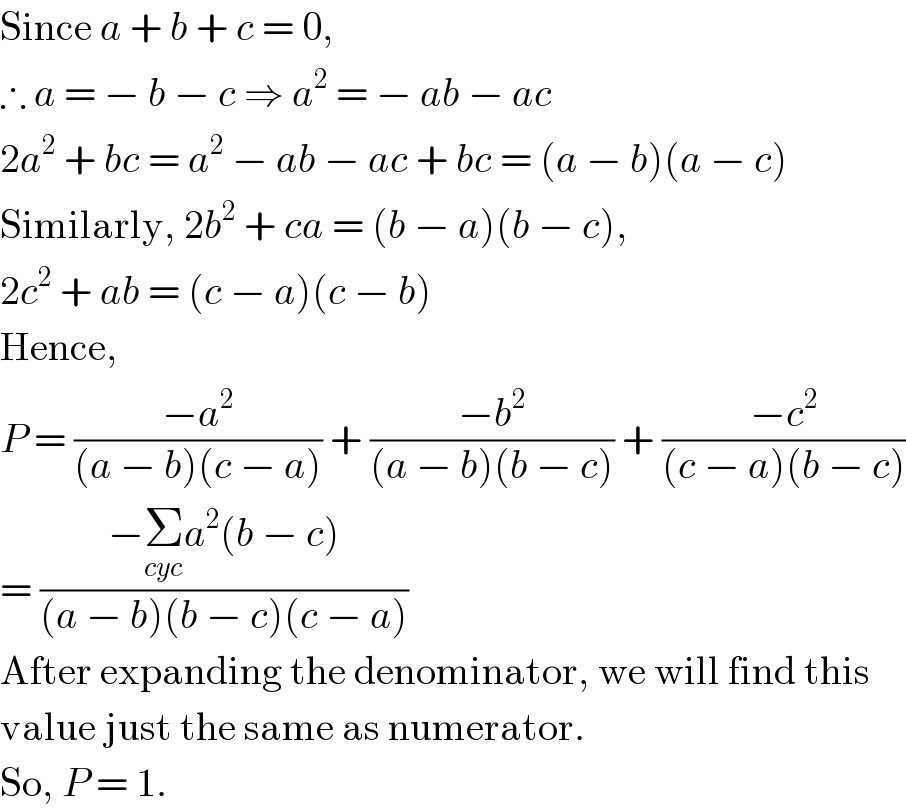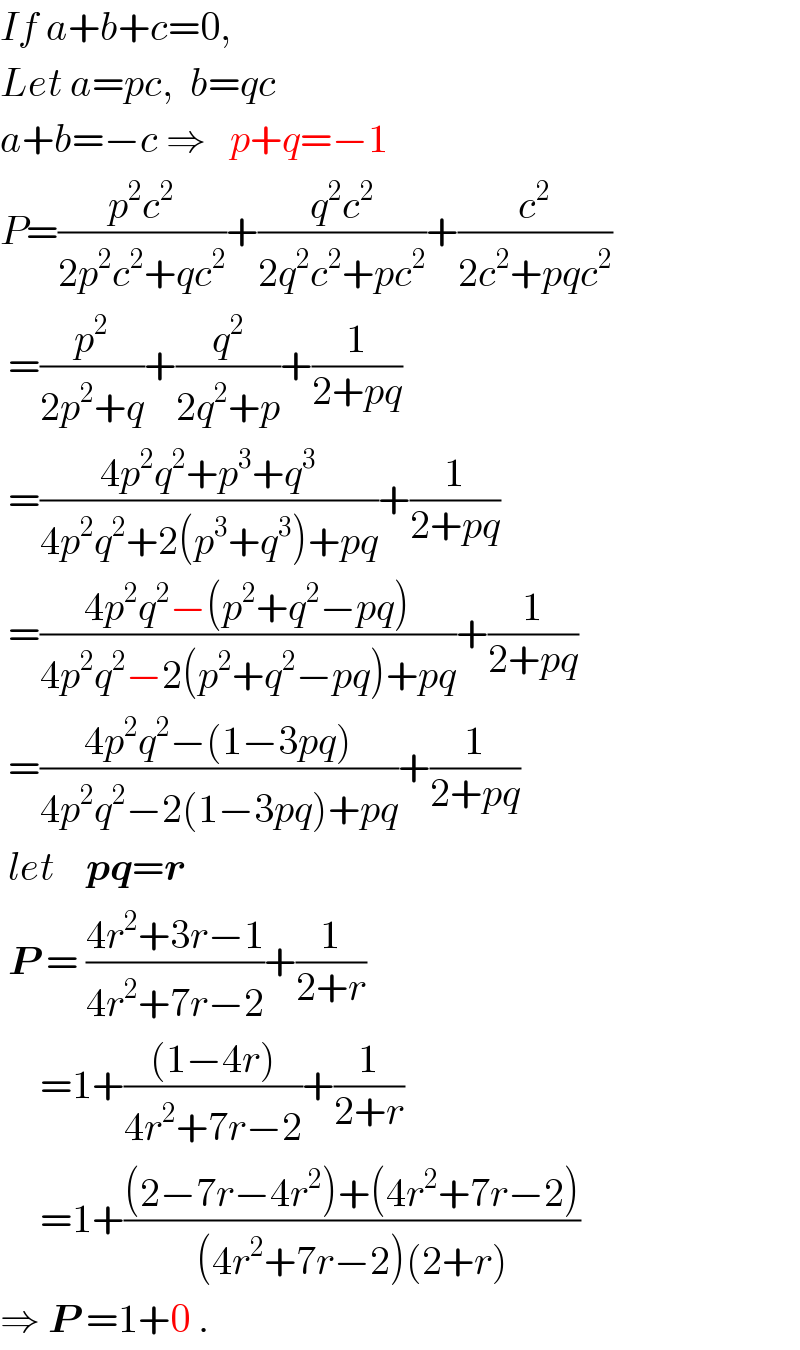
Question and Answers Forum
Question Number 20430 by Tinkutara last updated on 26/Aug/17

Commented by dioph last updated on 27/Aug/17

Answered by Tinkutara last updated on 27/Aug/17

Answered by ajfour last updated on 27/Aug/17

Commented by ajfour last updated on 27/Aug/17

Commented by Tinkutara last updated on 27/Aug/17

